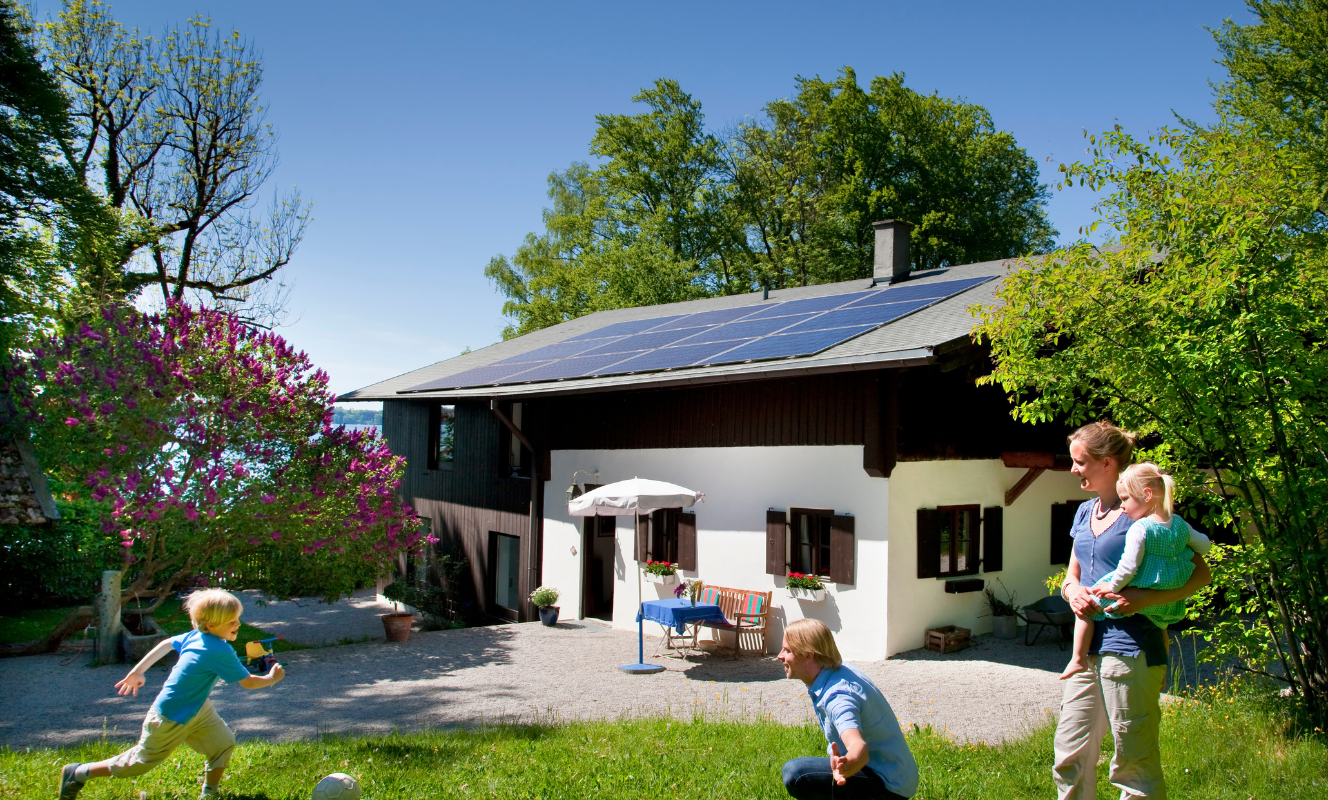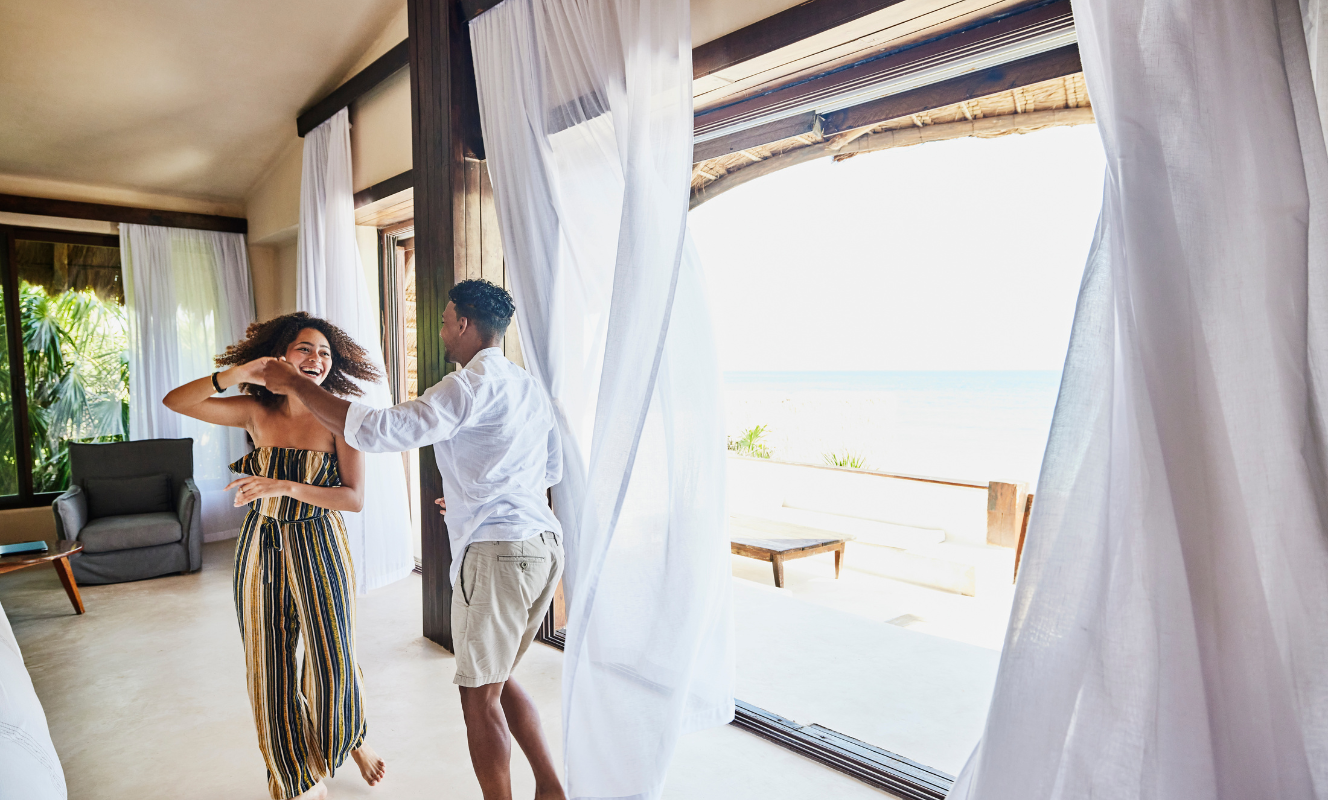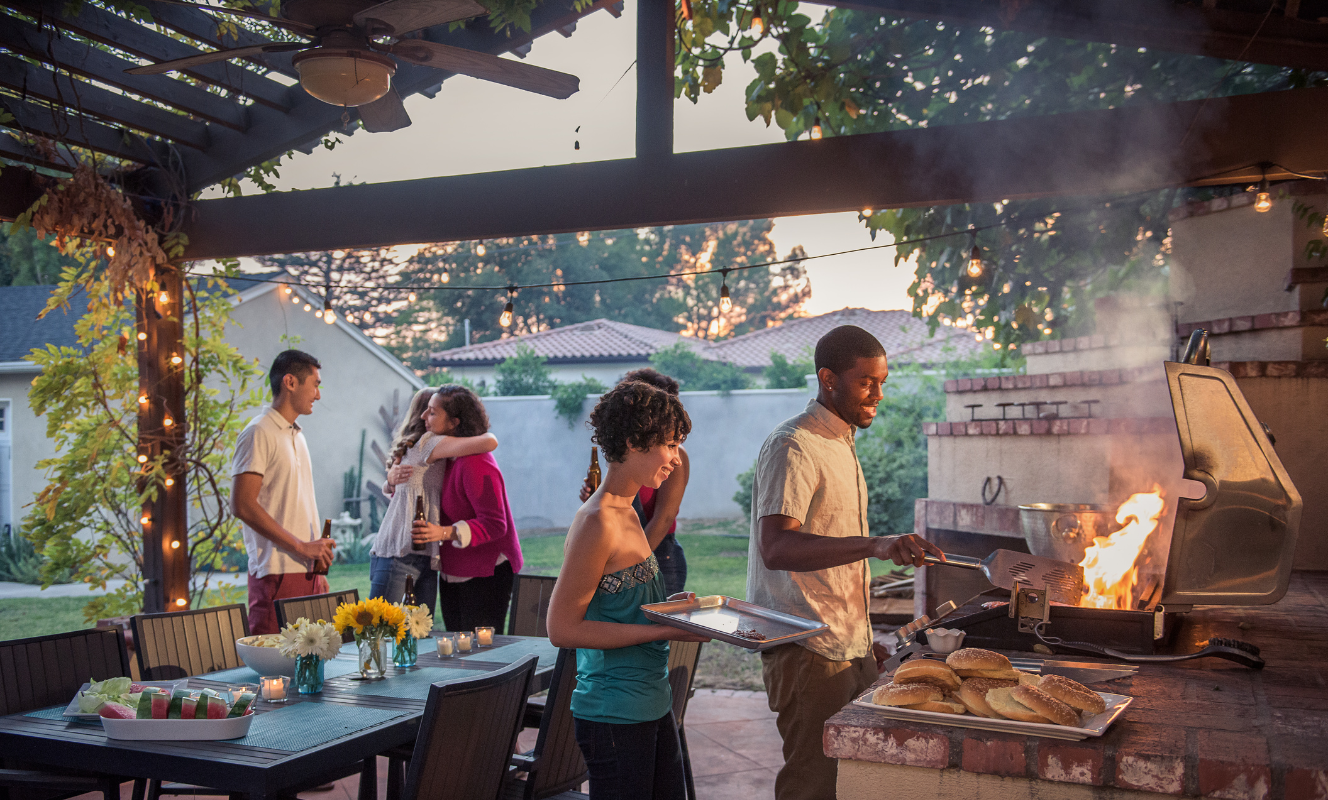As the summer sun blazes and temperatures soar, HomeExchangers across the globe seek refuge in the comfort of their homes. However, this sanctuary can come at a cost—skyrocketing energy bills and an increased strain on our environment.
Beyond the financial benefits of reducing energy consumption, prioritizing energy efficiency at home plays a vital role in mitigating climate change, conserving precious resources, and ensuring a sustainable future for generations to come. By adopting simple yet effective energy-saving habits, we can transform our homes into eco-friendly havens. We hope these tips will help you find easy ways to save energy throughout your HomeExchange experience!

On the guest side : tips to manage the heat (while saving energy!)
Utilize natural ventilation
Take advantage of cooler evenings and early mornings by opening windows to let fresh air circulate through your home. Use fans strategically to create a cross breeze, which can help cool down the space without relying solely on air conditioning! If the outside temperature is still very high in the evening, you can also avoid reopening them to keep the inside temperature fresh.
Make use of blinds and curtains
Close curtains, blinds, or shades during the day to block the sun's heat (all of them, not just the ones exposed to the sun). This helps keep your home cooler and reduces the need for excessive air conditioning. You can also wet your curtains, especially in the evening, when it starts to get cooler and you reopen the windows.Wet laundry has a significant cooling effect.

Responsibly use the cooling system, if your host has one
Setting the temperature of your cooling system to 26 degrees celsius rather than 22 degrees will reduce your energy consumption by half. You can also follow the “4° rule”. It's very simple, adjust the air conditioning so that there is never more than a 4° C difference between the indoor temperature and the outdoor temperature.
On the host side : Tips to manage the heat and reduce your energy bill
Maximize natural shade and landscaping
Planting trees or installing awnings and shades outside windows can provide natural shade and reduce the amount of direct sunlight that enters your home. This helps lower the indoor temperature and reduces the need for excessive cooling. If you have a small balcony, exposed more to the south and west, do not hesitate to place flower pots, pergolas, climbing plants, and other plants that create shade on the windows.
Unplug any electronics when not in use
Many devices continue to consume energy (and produce heat !) even when they're turned off. When you leave your home don’t forget to unplug chargers, TVs, computers, and other electronics that your guests won’t need. 10% of your energy can be saved per month by completing this simple action! It’s especially true when you leave without hosting any guests. When you’re home, you can also avoid cooking hot dishes like a roast in the oven, which can also generate heat.
Maintain and use your air conditioning responsibly
Clean or replace air filters regularly to ensure efficient airflow and reduce energy consumption. Schedule professional maintenance to ensure your cooling system is running at its best, and remember that the optimal temperature to reduce energy consumption is 26 degrees celsius! You can also think of the "4° rule". It's very simple, we adjust the air conditioning so that there is never more than a 4° C difference between the indoor temperature and the outdoor temperature.
Beyong heat : a few more tips for an energy-efficient summer
Provide low-carbon transportation alternatives
As a host, you can provide a guide for the public transport alternatives in your area or even offer your bike so your guests can avoid the car!
Opt for energy-efficient lightbulbs
Energy-efficient light bulbs have a longer durability and use about 30% less energy than conventional light bulbs. It has been estimated that the average household that switches to energy-efficient light bulbs saves 225 dollars per year.

Communication is key !
Oftentimes expensive energy bills can be avoided and the environment better respected with proper communication between guest and host. As a host, feel free to have a guide with clear instructions on how to manage the energy sources of your house, and as a guest don't be shy to ask questions!
Here are some sample phrases you can include in your welcome manual:
“To manage the heat, we recommend to close the blinds and curtains at 10 am”
“Remember to turn off all cooling systems when you leave the house”
“Please use the air conditioning sparingly (26° minimum, just in the rooms where you are, prefer fans when possible)”
We hope these tips will help you keep your home cool while preserving our planet’s resources!
Find your next HomeExchange!